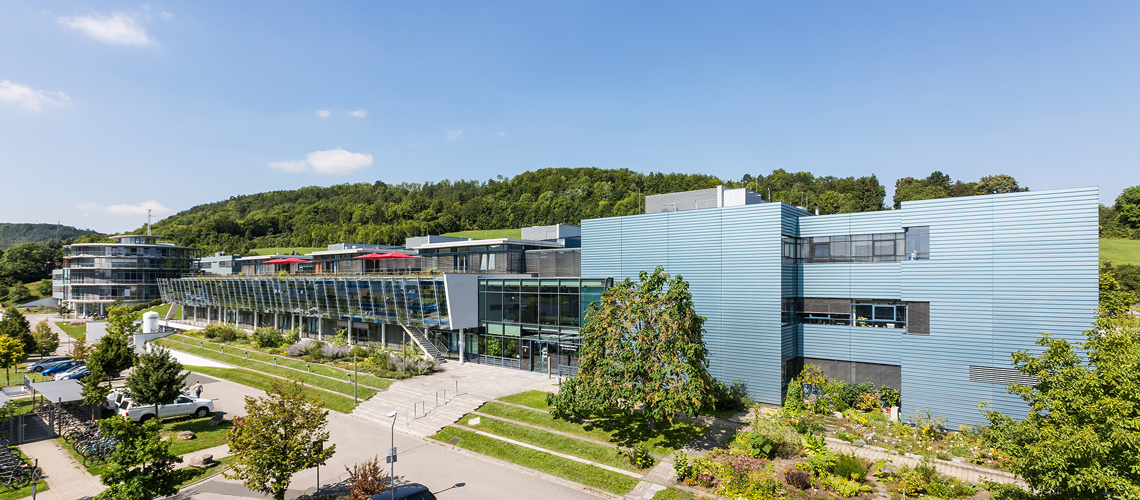The Department of Interface Science headed by Prof. Beatriz Roldan Cuenya at the Fritz-Haber-Institute is the place for cutting-edge research of advanced functional materials with applications in heterogeneous catalysis, energy conversion and electrochemistry. By combining unique synthesis methods, state-of-the art tools for experimental characterization and advanced approaches to data analysis, atomistic details of chemical and electrochemical reactions at gas/solid and liquid/solid interfaces are revealed, and structure-properties relationship in these materials are established, paving the way for the rational design of novel materials with enhanced catalytic properties.
The Interface Science department at Fritz-Haber-Institute offers a postdoctoral position (m/f/d) in the Operando Hard X-ray spectroscopy group – Project: Probing the structure of advanced catalytic materials using synchrotron radiation.
Synchrotron radiation facilities are powerful X-ray sources that can be employed for numerous experimental techniques, such X-ray spectroscopies, scattering and imaging. Unique features of synchrotron radiation – high intensity and broad energy spectrum – make these sources ideally suited for in-situ and operando investigations of advanced functional materials. These investigations are at the core of scientific activities of the Operando Hard X-ray spectroscopy group.
Central aspect of this project is the application and development of complimentary synchrotron radiation techniques (X-ray absorption spectroscopy, high-energy X-ray diffraction coupled with pair distribution function analysis, small-angle X-ray scattering) that provide information about the transformations of catalyst structure on different length scales under catalytically relevant conditions (at high pressures (up to 40 bar) and temperatures (up to 700°C), in the presence of reactive gases). The synchrotron-based research, carried out at leading German and European synchrotron radiation facilities, will be complemented by a development of lab-based tools for operando lab-based X-ray spectroscopy and X-ray diffraction, and development of corresponding data analysis tools, to which applicant is also expected to contribute.
The PostDoc position is initially limited to two years with the option for an extension.
Requirements
- PhD degree in physics, chemistry, material science or related field.
- Experience with synchrotron-based techniques (X-ray absorption spectroscopy, X-ray emission spectroscopy, high-energy X-ray diffraction coupled with pair distribution function analysis, small-angle X-ray scattering or related methods), including the ability to independently plan, design and execute experiments at synchrotron beamtimes and perform data analysis.
- Strong publication record in peer-reviewed journals.
- Ability to work in an international team.
- Good language and communication skills in English.
- Experience with operando catalysis experiments in gas phase, including the experience with high temperature and high pressure setups will be considered as an advantage.
- Basic programming skills and experience and interest in data science methods would be considered as an advantage.
Your application
Interested applicants should submit a cover letter, list of publications, a curriculum vitae and the names and contact information for three references via online application portal. Applications will be accepted from immediately until the position is filled. We thank all applicants for their interest; however, only those individuals selected for an interview will be contacted.
Max Planck Society
The Max Planck Society endeavours to achieve gender equality and diversity. Furthermore, the Max Planck Society aims to increase the participation of women in research. Therefore, applications by women are particularly welcome. The Max Planck Society is also committed to increasing the number of individuals with disabilities in its workforce and therefore encourages applications from such qualified individuals.
We handle applications electronically, observing the German data privacy laws. By sending the application, the applicant declares his or her consent.
Berlin
The Fritz Haber Institute (FHI) is located in the south-west of Gemany’s capital Berlin – a large, tolerant and cosmopolitan city. Berlin offers a wide variety of culture, art, music, and outdoor opportunities.
For more information please contact:
Dr. Janis Timoshenko (janis@fhi-berlin.mpg.de)
Fritz-Haber-Institut der Max-Planck-Gesellschaft
Faradayweg 4-6
14195 Berlin
Germany
